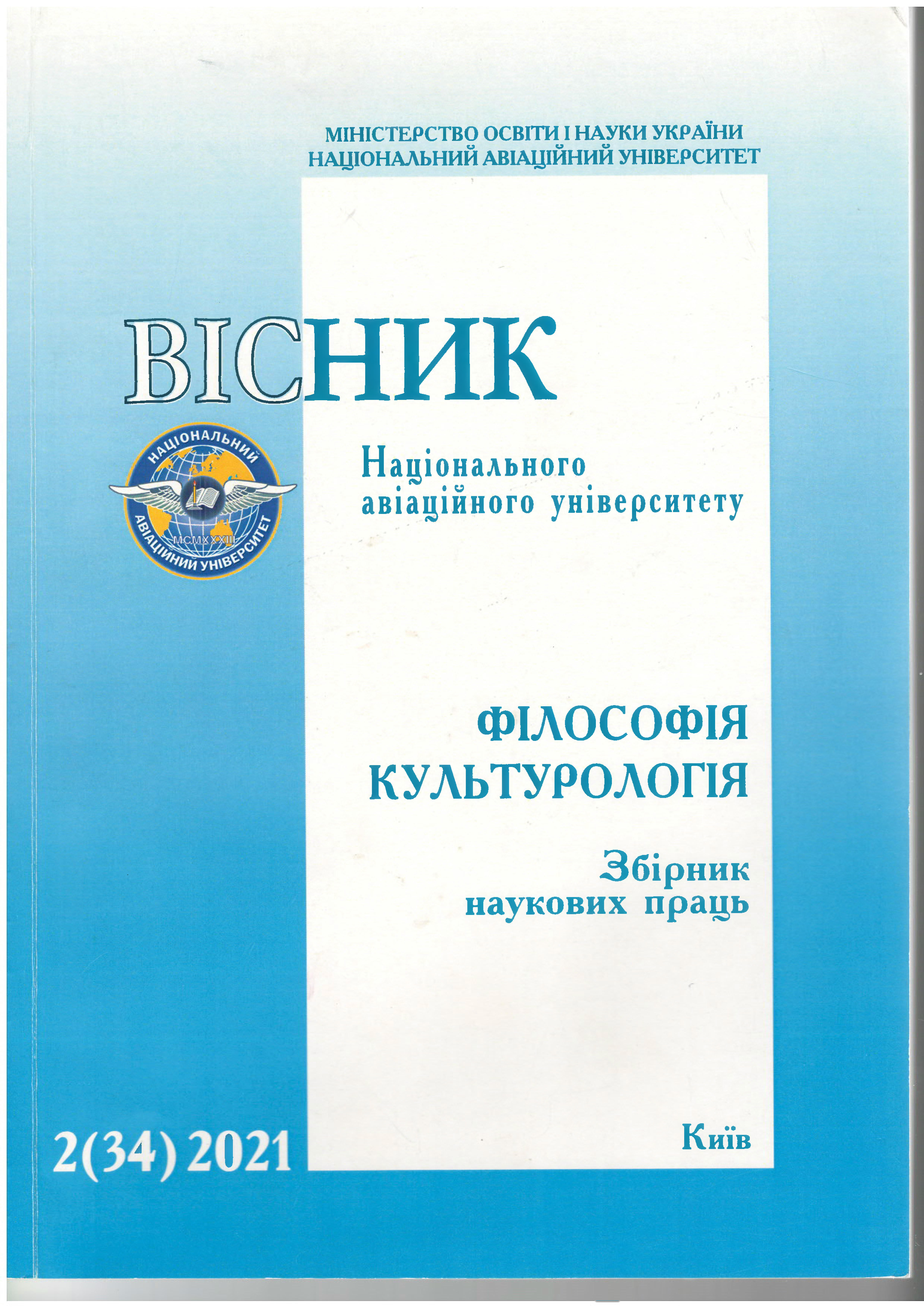NEW FORMS OF SOCIAL CONTROL, OR “HAPPINESS? NO, THANKS!”
DOI:
https://doi.org/10.18372/2412-2157.34.16310Keywords:
happiness, “happy consciousness”, illusion, social controlAbstract
Introduction. The world we live in is a world of total human programming for false values, one-time goods and total consumer
redundancy. Accordingly, there is an absolute substitution of all real, true and weighty with short-term affects, which create the illusion of
pleasure, well-being and even happiness. The aim of the study is to analyze the problem of controllability of modern, "one-dimensional"
(after H. Marcuse) man by information and material consumption, illusory notions of happiness, which are offered as a substitute and
filler for the individual devastated by the spiritual crisis. The tasks of the study are following: to analyze the specifics of man’s existence
in the continuity of the flow of information / material goods; to reveal the contents of the act of “good will” and voluntary
“programmability” for happiness; to find out the possibilities and prospects of the ex-owners of “happy consciousness Research
methodology. methodology of the work is the method of analysis and interpretation. Research results. From the time when a person's
physical fatigue from work is replaced by opaque fatigue from the hustle and bustle in the “choice-without-choice” space, a person
becomes the bearer of “happy consciousness”. An explanation of this phenomenon and its characteristics can be found in the work of
Herbert Marcuse “One-dimensional man”. “Loss of conscience due to permission to enjoy the rights and freedoms granted by a free
society, leads to the development of happy consciousness that is ready to accept the crimes of this society, which in turn indicates the
decline of autonomy and understanding”. Slavoj Zhizhek believes that modern man, who lives in a “one-dimensional” reality is focusing
on material goods and values іmposed by social media, is gradually losing his independence, even in the processes which he is
immersed in Conclusion. A one-dimensional man is a person who goes with the flow and is uncritical of his own pathological «social
myopia” (an allusion to the postmodern interpretation of paranoia/schizophrenia as social phenomenon). Slavoj Zhizhek concludes that
all those who are guided only by the material become the bearers of “happy consciousness”, and as a result the most unhappy ones
because they get what they really do not want. Conclusion. In conclusion, the study states that modern humans are really controlled
and manipulated in every way. And so, in order to be really, truly happy, you should play with the system according to its own rules:
being manipulated, one is conscious of it. It is clear that this will destabilize the daily course of life, as the truth always hurts. However,
the choice is ours: to be happy victims of manipulation or to take risks and stay true to ourselves. Therefore, in fact, “Happiness? No,
Thanks!”
References
Potential stock differences in the social behavior of rats in a
situation of restricted access to food. Rémi Helder, Didier Desor
and Anne-Marie Toniolo. Behavior Genetics. Volume 25, Number
, 483-487.
Жижек С. Чума фантазий / С. Жижек. – Харьков: Изд-во
Гуманитарный Центр, 2012. – 388 с.
Calhoun, J. Environment and Population: Problems and
Adaptation: An Experimental Book Integrating Statements by
Contributors. – Praeger, 1993. – P. 486.
Маркузе Г. Одномерный человек [Електронний ресурс] /
Г. Маркузе. – М. Изд-во: REFL-book, 1994. – 368 с. – Режим
доступу: http://socium.ge/downloads/komunikaciisteoria/markuze
%20odnomerni%20chelovek.pd
Ортега-и-Гассет Х. Восстание масс / Х. Ортега-и-
Гассет. – М: ООО «Издательство АСТ», 2002. – 509.
Форм Э. Человек одинок [Електронний ресурс] //
Э. Форм; Перевод с английского Р. Облонской. Иностранная
литература, 1966, № 1. – С. 230-233. – Режим доступу:
https://www.dominicanajournal.org/wp-content/files/old-jour nalarchive/
vol50/no1/dominicanav50n1erichfrommalonenessman.pdf
Sorensen A. The Structural Basis of Social Inequality /
A. Sorensen // American Journal of Sociology. March 1996. – Vol.
№. 5. – P. 1333-1336.
Žižek S. Happiness? No, thanks / S. Žižek // The
Philosophical Salon, 2018. – Електронний ресурс. – Режим
доступу: https://thephilosophicalsalon.com/happiness-no-thanks/


